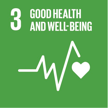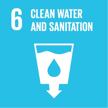About this project
The Sustainable Development Goals or SDGs are the common goals of nations that are members of the United Nations with the aim of improving the welfare of people around the world. Indonesia is one of the countries that supports the achievement of SDGs 20230. There are 17 goals in the SDGs, one of which is goal 6 on water and sanitation. In one of the indicators, goal 6 is to eradicate open defecation, ensure that all households have their own toilet facilities.
Bandar Lampung City is the Capital of Lampung Province, Indonesia with a population of more than 1 million people. Bandar Lampung is divided into 20 sub-districts and 126 sub-districts, of which 13 sub-districts are located in coastal areas. Even though it is the provincial capital, Bandar Lampung still has major challenges in terms of sanitation where there are still thousands of households that do not have access to sanitation facilities or practice open defecation, especially in areas close to rivers and coastal areas.
Kampoeng Gudang Agen, RT 47 in Pesawahan Village, is one of the areas directly adjacent to the sea. Limited land, economy and profession as a fisherman cause many houses to be built above the sea. The construction of houses that are above the sea encourages bathing, washing and toilet activities to be in the same location with direct disposal without any treatment. This condition can cause sea water pollution such as causing a bad smell, and killing the marine ecosystem around the environment.
This project aims to develop a technology that is effective, easy to work with at an affordable cost. This technology is called tripikon S which has been implemented in several regions in Indonesia. This project is expected to provide a solution for the Bandar Lampung City government in handling fecal waste in coastal areas. This project is also expected to be a lesson learned for other regencies/cities in the Lampung Province region.
Goals and Objectives
The main objective of this project is to overcome the problem of access to safe sanitation by developing a fecal waste treatment in the coastal area of Bandar Lampung City. The specific goals of this project are
a. increasing changes in the behavior of coastal communities regarding safe sanitation
b. the existence of effective technology, easy to carry with affordable cost
c. increasing management of safe sanitation in coastal areas
Several factors became the basis for choosing a coastal area as a project location, namely the coast is one of the vulnerable areas with poor sanitation conditions, the location of many houses above the sea, the economic conditions of low-income households.
The success of this project can be an example for Bandar Lampung City and even cities/districts in Lampung Province which have coastal areas in alleviating sanitation problems in coastal areas.
Expected result
The expected results from the implementation of this project are:
1. people in Village gain an understanding of handling coastal sanitation.
2. 12 households received training on making “tripikon S” technology
3. 12 houses have a fecal waste treatment system with “tripikon S” technology
In carrying out activities, the project will collaborate and involve the government, community and local youth groups so that activities can run with the same perception and goals.
To monitor this activity, the project will collaborate with universities/educational institutions to study the effectiveness of "tripikon S" technology in treating fecal waste, besides that the project will involve the POKJA POKJA in monitoring project progress.
Sustainable Development Goals
About me / organisation
Cindy Dwi Islami
24 years old, Youth Sanitation Concern Member active campaign sanitation issues


